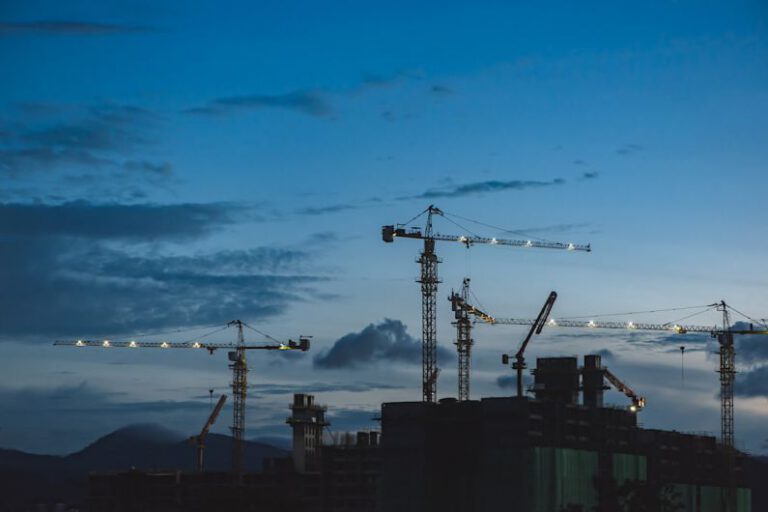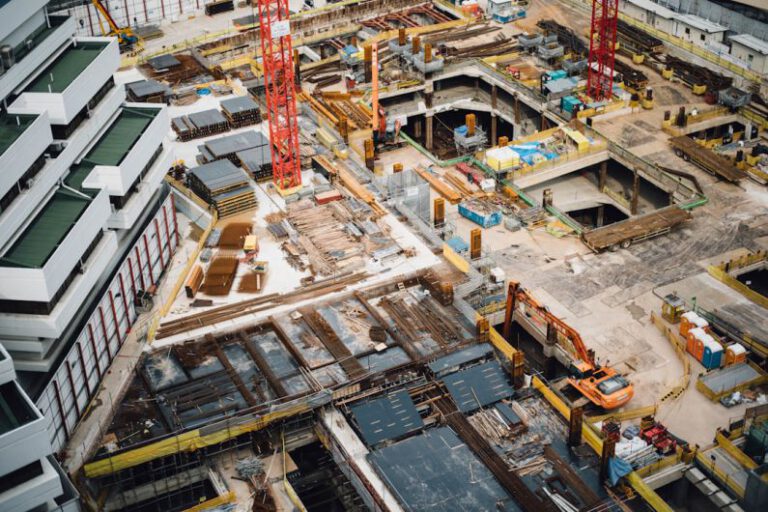Can Ai Predict Construction Delays before They Happen?
Construction projects are notorious for facing delays, causing frustration for all parties involved. From unexpected weather conditions to supply chain disruptions, various factors can contribute to these setbacks. However, with the advancement of technology, particularly artificial intelligence (AI), there is growing potential to predict construction delays before they happen. Can AI truly revolutionize the construction industry by foreseeing delays and enabling proactive measures to mitigate them?
The Potential of AI in Construction Delays Prediction
In recent years, AI has made remarkable strides in various industries, and the construction sector is no exception. By leveraging AI algorithms and machine learning capabilities, construction companies can now analyze vast amounts of data to identify patterns and forecast potential delays. This proactive approach allows project managers to make informed decisions and implement strategies to prevent or minimize disruptions.
AI-powered tools can take into account numerous variables that influence construction timelines, such as weather conditions, labor availability, material delivery schedules, and even historical project data. By processing this information in real-time, AI systems can generate accurate predictions regarding when and where delays are likely to occur. This predictive capability enables project teams to allocate resources more efficiently, adjust schedules preemptively, and ultimately enhance project outcomes.
Predictive Analytics for Timely Decision-Making
One of the key advantages of using AI for construction delay prediction is its ability to provide real-time insights that empower project managers to make timely decisions. By continuously monitoring project data and external factors, AI systems can alert stakeholders to potential risks well before they escalate into significant delays. This early warning system allows teams to take proactive measures, such as adjusting workflows, reallocating resources, or reorganizing schedules to avoid or minimize the impact of delays.
Moreover, AI can facilitate scenario planning by simulating different outcomes based on changing variables. By running predictive analytics models, project managers can evaluate the potential consequences of various decisions and select the most effective course of action to mitigate delays. This strategic approach not only enhances project management efficiency but also fosters a culture of proactive problem-solving within construction teams.
Enhancing Collaboration and Communication
Another crucial aspect of using AI for construction delay prediction is its potential to enhance collaboration and communication among project stakeholders. By centralizing project data and generating real-time insights, AI systems enable transparent information sharing and facilitate coordination among team members. This improved communication flow allows for quicker decision-making and more effective problem resolution, thereby reducing the likelihood of delays caused by miscommunication or information gaps.
Furthermore, AI can streamline the exchange of critical project updates and status reports, ensuring that all stakeholders are informed promptly about potential delay risks. This transparency fosters a sense of accountability and encourages proactive engagement from team members, suppliers, and subcontractors. By creating a shared understanding of project timelines and priorities, AI helps align efforts towards common goals and fosters a collaborative environment that is conducive to timely project delivery.
The Road Ahead: Embracing AI for Construction Excellence
As the construction industry continues to evolve, embracing AI for delay prediction is becoming increasingly essential for achieving project excellence. By harnessing the power of predictive analytics and real-time data insights, construction companies can proactively address delays, optimize resource allocation, and improve overall project performance. While AI cannot eliminate all delays, its ability to forecast potential risks and enable timely decision-making represents a significant step towards transforming the construction sector into a more efficient and resilient industry.






